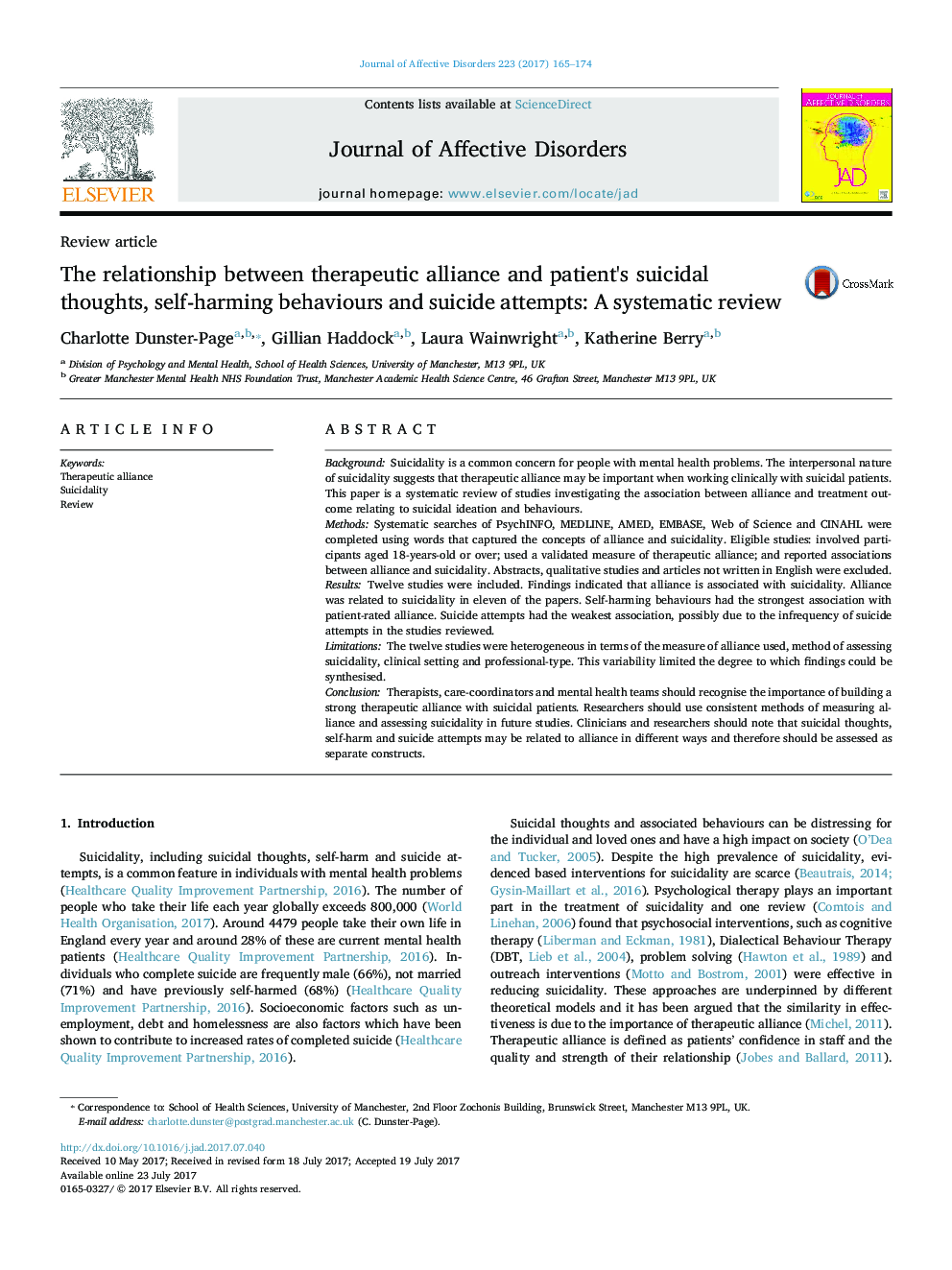| کد مقاله | کد نشریه | سال انتشار | مقاله انگلیسی | نسخه تمام متن |
|---|---|---|---|---|
| 5721807 | 1608102 | 2017 | 10 صفحه PDF | دانلود رایگان |
- Therapeutic alliance is related to suicidality in community patient-professional dyads.
- Self-harming behaviours have the strongest association with patient-rated alliance.
- Mental health professionals should aim to build a strong alliance with suicidal patients.
- Suicidal thoughts, self-harm and suicide attempts relate to alliance in different ways.
- Patient-rated alliance and professional-rated alliance relate to outcomes in different ways.
BackgroundSuicidality is a common concern for people with mental health problems. The interpersonal nature of suicidality suggests that therapeutic alliance may be important when working clinically with suicidal patients. This paper is a systematic review of studies investigating the association between alliance and treatment outcome relating to suicidal ideation and behaviours.MethodsSystematic searches of PsychINFO, MEDLINE, AMED, EMBASE, Web of Science and CINAHL were completed using words that captured the concepts of alliance and suicidality. Eligible studies: involved participants aged 18-years-old or over; used a validated measure of therapeutic alliance; and reported associations between alliance and suicidality. Abstracts, qualitative studies and articles not written in English were excluded.ResultsTwelve studies were included. Findings indicated that alliance is associated with suicidality. Alliance was related to suicidality in eleven of the papers. Self-harming behaviours had the strongest association with patient-rated alliance. Suicide attempts had the weakest association, possibly due to the infrequency of suicide attempts in the studies reviewed.LimitationsThe twelve studies were heterogeneous in terms of the measure of alliance used, method of assessing suicidality, clinical setting and professional-type. This variability limited the degree to which findings could be synthesised.ConclusionTherapists, care-coordinators and mental health teams should recognise the importance of building a strong therapeutic alliance with suicidal patients. Researchers should use consistent methods of measuring alliance and assessing suicidality in future studies. Clinicians and researchers should note that suicidal thoughts, self-harm and suicide attempts may be related to alliance in different ways and therefore should be assessed as separate constructs.
Journal: Journal of Affective Disorders - Volume 223, 1 December 2017, Pages 165-174
